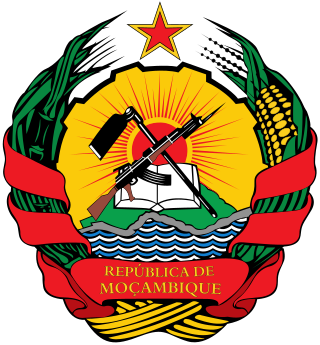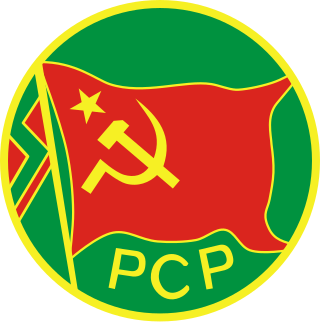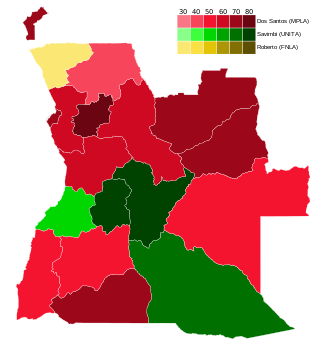
Politics in Portugal operates as a unitary multi-party semi-presidential representative democratic republic, whereby the Prime Minister of Portugal is the head of government, and the President of Portugal is the non-executive head of state which, although it is a somewhat ceremonial figure, has some significant political powers they exercise often. Executive power is exercised by the Government, whose leader is the prime minister. Legislative power is primarily vested in the Assembly of the Republic, although the government is also able to legislate on certain matters. The Judiciary of Portugal is independent of the executive and the legislature. The President exerts a sort of "moderating power", not easily classified into any of the traditional three branches of government.

The Carnation Revolution, also known as the 25 April, was a military coup by military officers that overthrew the authoritarian Estado Novo government on 25 April 1974 in Lisbon, producing major social, economic, territorial, demographic, and political changes in Portugal and its overseas colonies through the Processo Revolucionário Em Curso. It resulted in the Portuguese transition to democracy and the end of the Portuguese Colonial War.

Marcelo José das Neves Alves Caetano was a Portuguese politician and scholar. He was the second and last leader of the Estado Novo after succeeding António de Oliveira Salazar. He served as prime minister from 1968 to 1974, when he was overthrown during the Carnation Revolution.

The Estado Novo was the corporatist Portuguese state installed in 1933. It evolved from the Ditadura Nacional formed after the coup d'état of 28 May 1926 against the unstable First Republic. Together, the Ditadura Nacional and the Estado Novo are recognised by historians as the Second Portuguese Republic. The Estado Novo, greatly inspired by conservative and autocratic ideologies, was developed by António de Oliveira Salazar, who was President of the Council of Ministers from 1932 until illness forced him out of office in 1968.

The National Union was the sole legal party of the Estado Novo regime in Portugal, founded in July 1930 and dominated by António de Oliveira Salazar during most of its existence.

The African Party of Independence of Cape Verde is a democratic socialist political party in Cape Verde. It was the sole legal party in the country from 1981 to 1990. Its members are nicknamed "os tambarinas" in Portuguese, and they identify themselves with the color yellow.

The Assembly of the Republic, commonly referred to as simply Parliament, is the unicameral parliament of Portugal. According to the Constitution of Portugal, the parliament "is the representative assembly of all Portuguese citizens". The constitution names the assembly as one of the country's organs of supreme authority.

Mozambique elects representatives at several levels:

Elections in Portugal are free, fair, and regularly held, in accordance with election law.

Constituent Assembly elections were carried out in Portugal on 25 April 1975, exactly one year after the Carnation Revolution. The election elected all 250 members of the Portuguese Constituent Assembly.

The National Assembly is the unicameral legislative body of the Republic of Cabo Verde.

The unicameral Assemblée nationale or National Assembly is Guinea's legislative body. Since the country's birth in 1958, it has experienced political turmoil, and elections have been called at irregular intervals, and only since 1995 have they been more than approval of a one-party state's slate of candidates. The number of seats has also fluctuated.

The history of the Portuguese Communist Party, spans a period of 102–103 years, since its foundation in 1921 as the Portuguese section of the Communist International (Comintern) to the present. The Party is still an active force within Portuguese society.
Portugal's redemocratization process started with the Carnation Revolution of 1974. It ended with the enactment of the Constitution of Portugal in 1976.

This is a table of the electoral results of the Portuguese Communist Party. Despite the Party had been founded in 1921, the party experienced little time as a legal party, being forced into clandestinity after a military coup in 1926. In the following decades, Portugal was dominated by the dictatorial regime led by António Oliveira Salazar, that kept the Party illegal. Although the regime allowed elections during some periods, the Party, given its illegal status, could never legally enter the electoral process and the heavy manipulation of the electoral results never allowed a democratic candidate to win. The regime would only end in 1974, with the Carnation Revolution, that implemented broad democratic changes in the country.

General elections were held in Angola on 29 and 30 September 1992 to elect a President and National Assembly, the first time free and multi-party elections had been held in the country. They followed the signing of the Bicesse Accord on 31 May 1991 in an attempt to end the 17-year-long civil war. Voter turnout was 91.3% for the parliamentary election and 91.2% for the presidential election.

Since its independence from Portugal in 1975, Angola has had three constitutions. The first came into force in 1975 as an "interim" measure; the second was approved in a 1992 referendum, and the third one was instituted in 2010.

Parliamentary elections were held in Portugal on 26 October 1969. The elections were announced on 12 August, and were the first under Prime Minister Marcello Caetano, appointed in the previous year to replace long-term Prime Minister António de Oliveira Salazar, who had been left incapacitated after a stroke. The quasi-sovereign National Union won all seats with an official turnout of 62.5%.

Presidential elections were held in Portugal on 8 June 1958, during the authoritarian Estado Novo regime led by Prime Minister António de Oliveira Salazar.

Parliamentary elections were held in Lithuania on 10 and 11 October 1922, electing 78 members of the First Seimas. They were the first elections held in Lithuania under the 1922 constitution, which had been adopted by the Constituent Assembly on 1 August 1922.


















